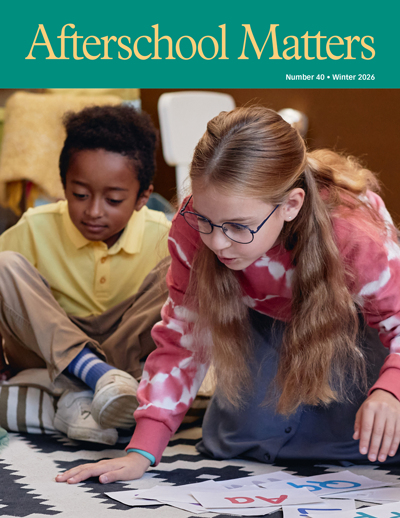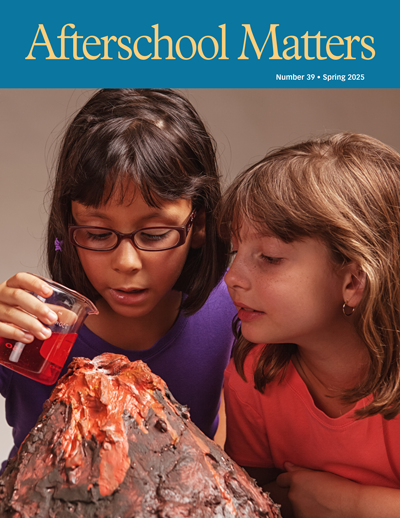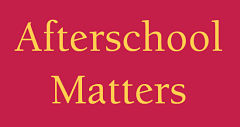By Helen Chiu, Sarai Koo, George D. Taylor, and Gregory K. Tanaka
With a public school student-to-counselor ratio that has surpassed 400 to 1 nationally for the past 30 years (American School Counselor Association, 2020), afterschool programs play a vital role in bridging disparities in college access.
Continue Reading
By Sarah Underwood, Heather Diaz, Stephanie Manieri, and Magalli Larqué
“Before I started this program, if anybody ever said they had a mental illness, I’d probably immediately have thought that they were crazy. And I probably would have had this perspective that I myself could never have a mental illness because, as a Latina, I have to be strong and resilient. I can’t show signs of weakness because that’s not who we are.”
Continue Reading
By Sonia M. Toledo
Afterschool supervisors are responsible for managing their teams, building curricula, maintaining relationships with parents and community partners, solving crises, and implementing the latest trends in 21st century learning, all of which can create a high-stress work environment (Kremer et al., 2015).
Continue Reading
A Culturally Responsive, Project-Based Interdisciplinary Summer Camp
By Alma D. Stevenson and Shelli L. Casler-Failing
During recent decades, educational reform in the U.S. has favored standards-driven curricula with the purpose of improving education. However, national assessments have not demonstrated significant improvements in educational outcomes, especially among economically disadvantaged and minoritized populations (Hussar & Bailey, 2017).
Continue Reading
By Neil Naftzger, Kathryn Wheeler, and Georgia Hall
Recent research syntheses (see, for example, Naftzger & Newman, 2021) have detailed how afterschool programs can support youth learning and development, including social and emotional learning, interest development, increased engagement in school, and a variety of school-related outcomes. However, one area that has received less attention is how afterschool programs that meet established quality benchmarks can support the development of social and emotional skills and of literacy skills among participating children.
Continue Reading



